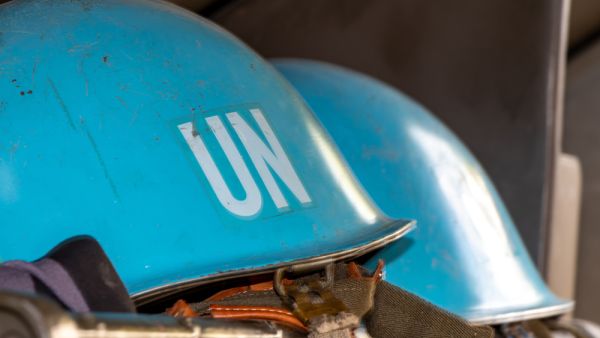The United Nations has appealed for $100 million to help it boost support for refugees fleeing escalating conflicts and crises in Africa embarking on risky migration routes to Europe.
The UN refugee agency voiced deep concern over swelling displacement from conflicts in Africa's Sahel region, as well as in the East and Horn of Africa.
This, it said, was driving more people to attempt deadly crossings of the Mediterranean towards Europe, resulting in at least 1,064 deaths along the central and western crossing routes last year alone.
"UNHCR is seeking just over $100 million to enhance refugee protection in African countries en route to the Mediterranean," the agency said in a statement.
"Offering safe and viable alternatives to the perilous journeys marred by abuse and deaths is the critical priority."
Chief of Staff: Ron Klain
— Al Jazeera English (@AJEnglish) January 21, 2021
A longtime Biden aide, Klain previously worked as Biden's chief of staff when he was vice president. During Obama's administration, he was dubbed Ebola czar – and is expected to help with COVID-19 efforts https://t.co/kMrSOYx1UU pic.twitter.com/CsTRIcp3FR
Violence across the Sahel region, which stretches from Senegal through Mauritania, Mali, Burkina Faso, Niger, Nigeria, Chad and Sudan, has forced around 2.9 million people to flee their homes, according to the agency.
'Harrowing'
"With no prospects for peace and stability in the region, further displacement is highly likely," it warned, stressing that "many continue to attempt risky sea journeys to Europe."
UNHCR pointed to driving factors for including protracted displacement, dire conditions in neighbouring countries where many had already attempted to seek shelter and the economic impact of the Covid-19 pandemic.
The sea crossing itself is not the only dangerous part of the journey for many of the refugees and migrants trying to make their way to Europe.
"We hear harrowing first-hand accounts of brutality and abuses that refugees and migrants suffer along the routes towards the Mediterranean," Vincent Cochetel, UNHCR's special envoy for the situation in the Central Mediterranean, said in a statement.
"Many fall prey to traffickers and smugglers and are abused, extorted, raped, and sometimes killed or left to die."
Cochetel stressed that many of those fleeing violence and persecution at home "have dire and urgent protection needs."
"It is critical that they receive life-saving support and protection in the countries to which they initially flee," he insisted.
UNHCR said that the money it was seeking was part of a new strategy aimed at increasing outreach, identification and assistance to refugees along the migration routes.
The agency meanwhile reiterated its call to states to make it easier for refugees to move legally between countries, including through family reunification, to reduce their need to set off on dangerous land and sea journeys in the first place.
Refugee resettlement hits 20-year low
Barely 1.6 percent of 1.44 million people with refugee status who were prioritised for resettlement in another country of asylum last year found new homelands through the UNHCR, the lowest number in nearly two decades, it said.
"These planes are really the heart of the battle." Money is needed to keep these planes fighting against the locusts in East Africa as the UN's @CyrilFao explains https://t.co/OeydQcwcS5
— BBC News Africa (@BBCAfrica) January 27, 2021
The drop to 22,770 admissions was due to lower quotas set by recipient countries, limited flights and delays in processing during the coronavirus pandemic, the UNHCR said. In 2019, it resettled 63,696 refugees in need of transfer from one asylum country to another.
"We can only hope that 2020 will be an extreme anomaly for refugee resettlement. We urgently call on governments to boost their programmes this year, offer more places, expedite the processing of cases and help us save lives of those most in need and at greatest risk," Gillian Triggs, UNHCR’s Assistant High Commissioner for Protection, said in a statement.
Refugees from Syria, the Democratic Republic of the Congo, and Myanmar were the largest groups resettled in 2020.
The United States resettled the highest number of refugees last year, 6,740, but this was less than one-third of the 21,159 that it admitted in 2019, UNHCR figures show.
President Joe Biden has said he would raise the cap for refugees resettled in the United States from abroad to 125,000 from the historic low-level of 15,000 set by his predecessor Donald Trump for this US fiscal year that began in October.
Sweden and Canada ranked second and third last year, resettling 3,543 and 3,496 refugees respectively through UNHCR programmes.
The vast majority of the world's total 26.4 million refugees who have fled wars and persecution remain in neighbouring countries, but the most vulnerable and those with special needs are given priority for resettlement.
This article has been adapted from its original source.








